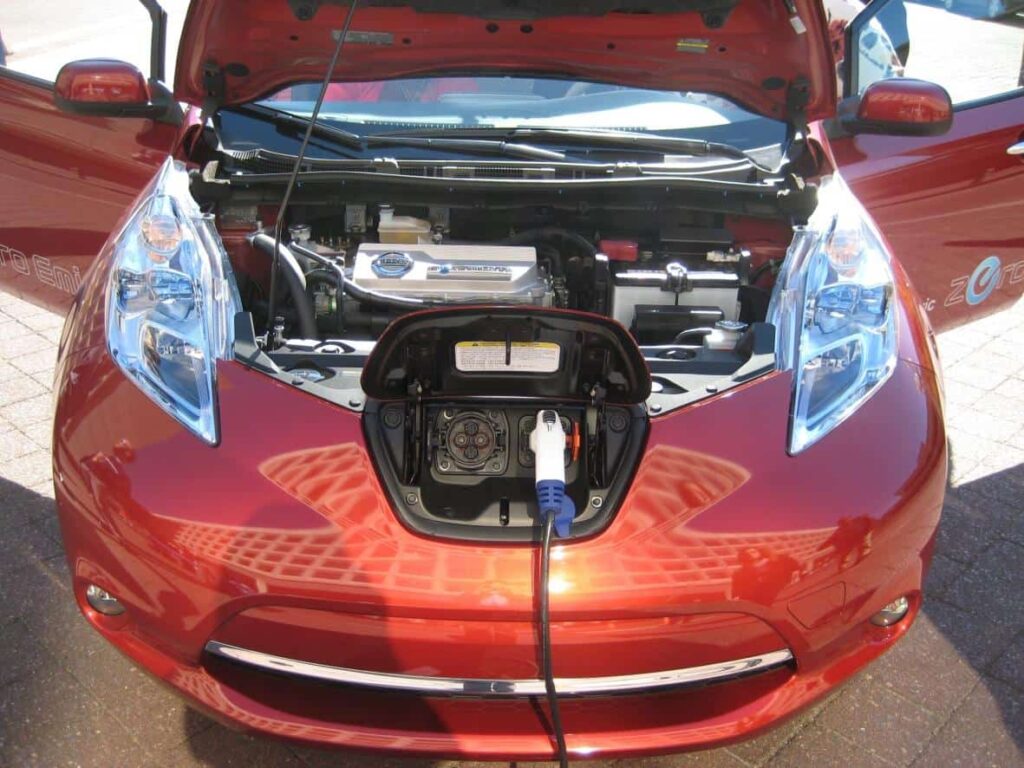
Electric cars can’t steer the climate

But they're driving the Energy Internet and saving the city
- Dateline
- 2 June 2030
It’s official. It’s now cheaper, on average, to buy a new electric car than one that burns gasoline, without subsidies. But it’s not having any effect on climate change. It seems the global climate runs on its own largely unexplained clock, and nothing we do affects it much.
Electric cars have become the vehicle of choice for two reasons; cheaper, more efficient batteries, and charging convenience. Now that the vast majority of electric power comes from renewable sources, it makes sense to put the excess to good use whenever it’s available – and that’s cheaper than gas.
Solar power is widely distributed, and very efficient; but it was storage technology that made the big difference. After all, solar doesn’t work very well at night, or when it’s raining.
Led by Tesla, Mercedes, BYD and Samsung, battery packs for cars and home storage became commodity items; every home should have one, and many do. Putting solar on your roof became a no-brainer. Why pay to charge your car, when you can do it yourself? And you can always sell the leftovers to your neighbour.
Now the Energy Internet is in full swing. Micro-grids connect neighbourhoods of rooftop producers with home and business consumers, and there’s a charging point at every parking space. It’s all backed up and stabilized by universal battery packs, and micro-payments for energy are easily managed by the blockchain.
Who would have thought that smart city infrastructure would be driven by cars? It’s all thanks to the auto manufacturers, and the electric car.
Links to related stories
- Move over Tesla, Europe's building its own battery Gigafactories
- Toyota pushes into blockchain tech to enable the next generation of cars
- Electric Cars Could Be Cheaper Than Internal Combustion by 2030
- MindBullet: THE END OF CITIES BUILT FOR CARS (Dateline: 14 April 2023, Published: 19 January 2017)
- MindBullet: MOBILITY AS A SERVICE (Dateline: 17 August 2019, Published: 16 June 2016)
Warning: Hazardous thinking at work
Despite appearances to the contrary, Futureworld cannot and does not predict the future. Our Mindbullets scenarios are fictitious and designed purely to explore possible futures, challenge and stimulate strategic thinking. Use these at your own risk. Any reference to actual people, entities or events is entirely allegorical. Copyright Futureworld International Limited. Reproduction or distribution permitted only with recognition of Copyright and the inclusion of this disclaimer.